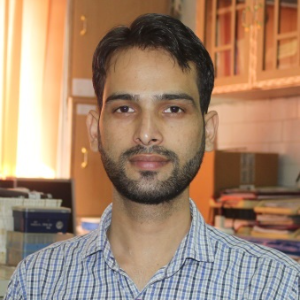Title : Microbial endophytes and soil enzymes contribute to the growth and establishment of Ginkgo biloba L.
Abstract:
Ginkgo biloba L. (English name- Maidenhair tree), often referred to as the "living fossil", is the only living member of the family Ginkgoaceae. While the species has been interesting from its evolutionary viewpoint, it is also well known for its sturdiness, disease resistance properties and long life. Its natural habitats are located in China, Japan and Korea. Some well established Ginkgo trees have also been located in the hilly tracts of the Indian Himalayan region (IHR), maximum being in the state of Uttarakhand. It has been in use as food component and as medicine (memory enhancer and anti-vertigo agent) traditionally since ancient times. In America and European countries, Ginkgo extracts are prepared at commercial scale. IUCN red list and Botanical Survey of India declared this species as "endangered" and "rare", respectively. While the species is extremely slow growing, its regeneration through seeds is also very poor. In this background, the species needs focused efforts for its propagation and conservation.
Root microbiome, microbial endophytes, in particular, play the crucial role in plant growth. Ginkgo has been studied for its root associated microflora and has been reported to be colonized by a number of endophytic microorganisms, both bacteria and fungi. Pseudomonas sp. MTCC9476, a bacterial endophyte isolated from the mycorrhizae infected roots of Ginkgo was demonstrated for its plant growth promoting and biocontrol properties. The bacterial species, in a liquid formulation, is being used in the propagation of Ginkgo through stem cuttings. Root and rhizosphere soil samples, collected from approximately 10-year-old plants of Ginkgo that were raised using stem cuttings and the bacterial formulation and field transferred at a forest nursery (Kalika, Ranikhet, Uttarakhand), are being evaluated in active (summer) and dormant (winter) seasons with respect to plant growth related parameters. Influence of bacterial inoculation on microbial colonization and soil parameters (physicochemical and soil enzymes) are the main components of this presentation.
Microscopy of the root samples revealed higher colonization of dark septate endophytes (DSE) 51.10%, fungal mycelium (FM) 95.00%, microsclerotia (MS) 24.44% and arbuscules (AR) 20.00% in treated plants as compared to the roots of control plants (DSE 25.00%, FM 83.33%, MS 12.50%, AR 8.30%), in dormant season. Soil organic carbon (3.74%) and total nitrogen content (0.25 g/kg) were also higher in treated plants while the total phosphorus was recorded higher (0.13 ppm) in control plants in dormant season. The activity of soil enzymes namely acid phosphatase (176.50pNP µg/g dry soil/ h), alkaline phosphatase (244.46pNP µg/g dry soil/ h), β-glucosidase (127.44 pNP µg/g dry soil/ h) and dehydrogenase (0.49TPF µg/g dry soil/h) were also higher in the treated plants. The pattern of soil physicochemical and enzyme activity was at par in both active and dormant seasons. The results are indicative of the positive influence of bacterial inoculation on the plant and soil health-related parameters. The study has implications in recommending the use of this microbial based eco-friendly technology in propagation and conservation of the endangered or rare plant species.
Take Away Notes:
• The importance of root associated microorganisms and soil enzymes in soil, plant and environment health.
• Application of this microbe based and environment friendly technology in cutting down the use of chemical fertilizers which are harmful for the heath of soil, plant and environment.
• Replication of this technology in similar studies.


